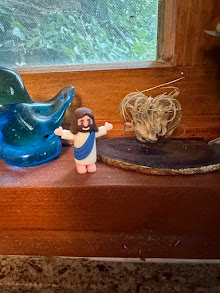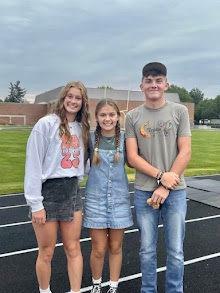Forty years ago, my mother and father sold their land in Calloway county and bought a property with a limestone creek, a gabled barn, a milking parlor, some pasture ground and a couple of fields planted to milo. They had a vision and over the years they realized their plan, seeding the upland field to warm season prairie grasses, building ponds, and fences, and facilities in and around the big barn for handling cattle and storing hay. The milo fields became a pasture, and an orchard. The rundown outbuildings were painted red and roofed in silver, jacked up and leveled and put to use. There was a bountiful garden with soil mellowed by well aged manure carted up a wheelbarrow at a time from the red barn floor. Over time the rambling old home was remodeled; two greenhouses spoke to the resident green thumbs; a swing set was built for grandchildren and a telescope turned the former milking parlor into a planetarium. Summertime and wintertime: holidays and harvests: the farmstead was a lovely busy fruitful place.
But neither a house, nor a farm, really makes a home. The couple who lovingly restored and improved and transformed the worn out ground and aged house are worn and aged themselves. The gardens have gradually shrunk and the apple trees are bent and broken. The place is still lovely; the pastures with well fed cattle, the grasslands without sprouts, the ponds fenced, the little trees planted decades ago now mature. But there is an air of emptiness this spring as the daffodils bloom unnoticed and the early opportunistic weeds spring up unabated.
As a gardener I know only too well how quickly our most strenuous efforts at taming the land to our wishes can vanish. It is a visual manifestation of the Biblical klaxon, a warning that:
15 As for man, his days are like grass;
As a flower of the field, so he flourishes.
16When the wind has passed over it, it is no more,
And its place acknowledges it no longer.
(Psalm 103:15-16)
(Psalm 103:15-16)
....or
For, "All people are like grass, and all their glory is like the flowers of the field;
the grass withers and the flowers fall,
(1 Peter 1:24)
(1 Peter 1:24)
Our works, our beauty, our efforts...ephemera.
But... that is not all...
To paraphrase St. Paul, " I will show you a still more excellent way...." (1 Corinthians 12:31)
In a desk drawer upstairs is a packet of letters tied with black twine addressed to a midshipman in the Navy from a young woman at Greenberry Road. The bundle of letters has made many moves: from Jefferson City to Columbia to Chicago back to a farmhouse attic in Calloway county to an antique dresser on the other side of the Missouri and now safely stowed in a desk my mother's father made out of hard rock maple. I haven't unwound the twine string, but the survival of these letters after more than a half century and many more miles attests more loudly than any words to ties that bind.
4Love is patient, love is kind and is not jealous; love does not brag and is not arrogant, 5does not act unbecomingly; it does not seek its own, is not provoked, does not take into account a wrong suffered, 6does not rejoice in unrighteousness, but rejoices with the truth; 7bears all things, believes all things, hopes all things, endures all things.
These two people are not perfect, not always patient and kind, at times provoked, but they are faithful. They care for each other....even when they cannot care for themselves. This and every other long marriage testifies that love bears much and endures all. Gardens lie fallow and houses stand empty; bodies become fragile and break.....
"for now we see in a mirror dimly...but then face to face."
It's a promise.

































No comments:
Post a Comment